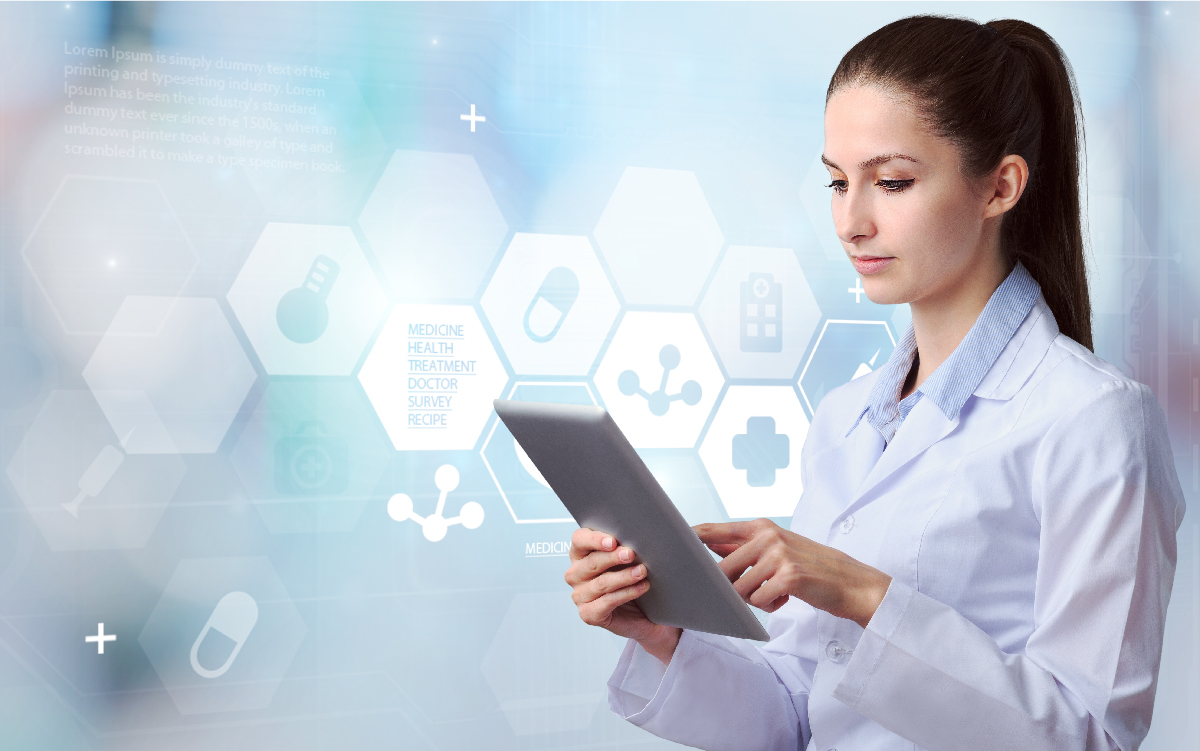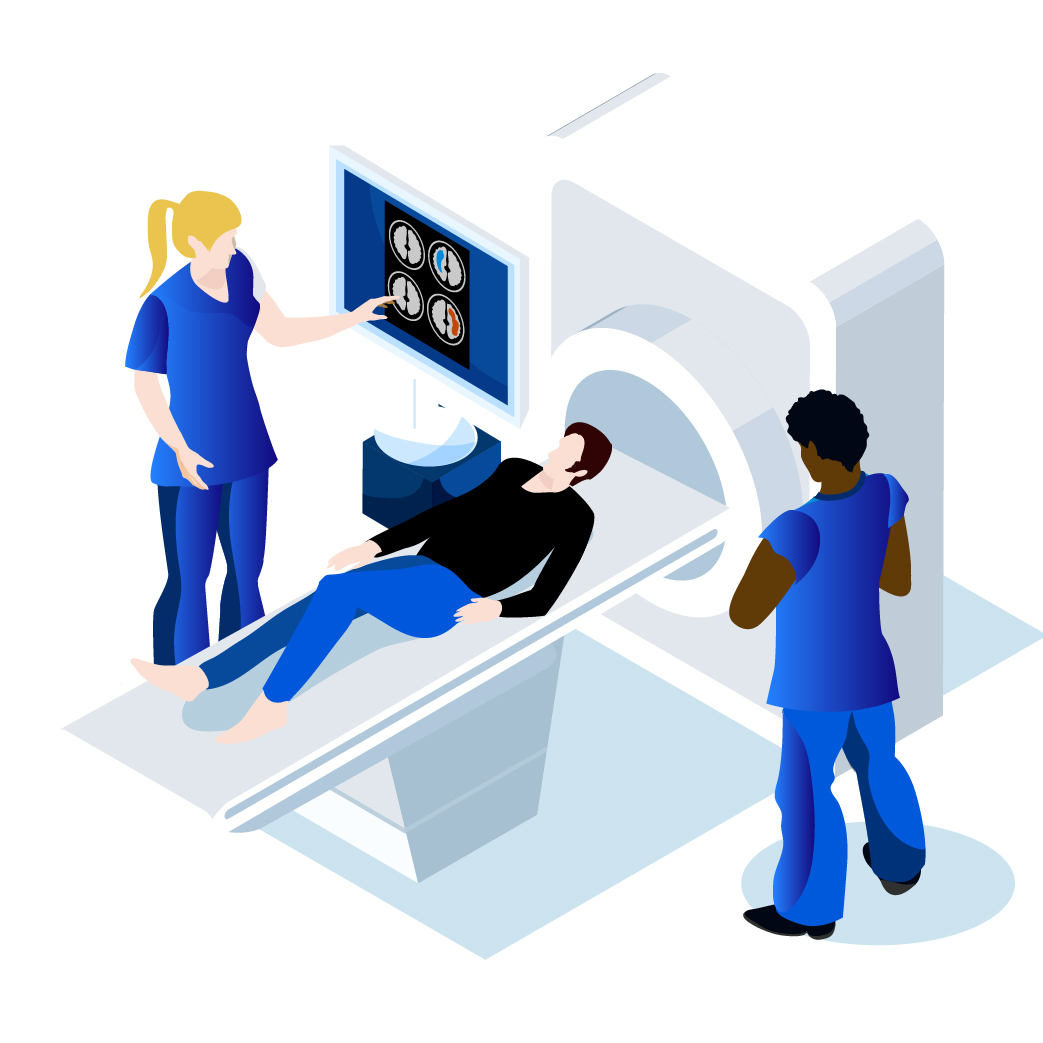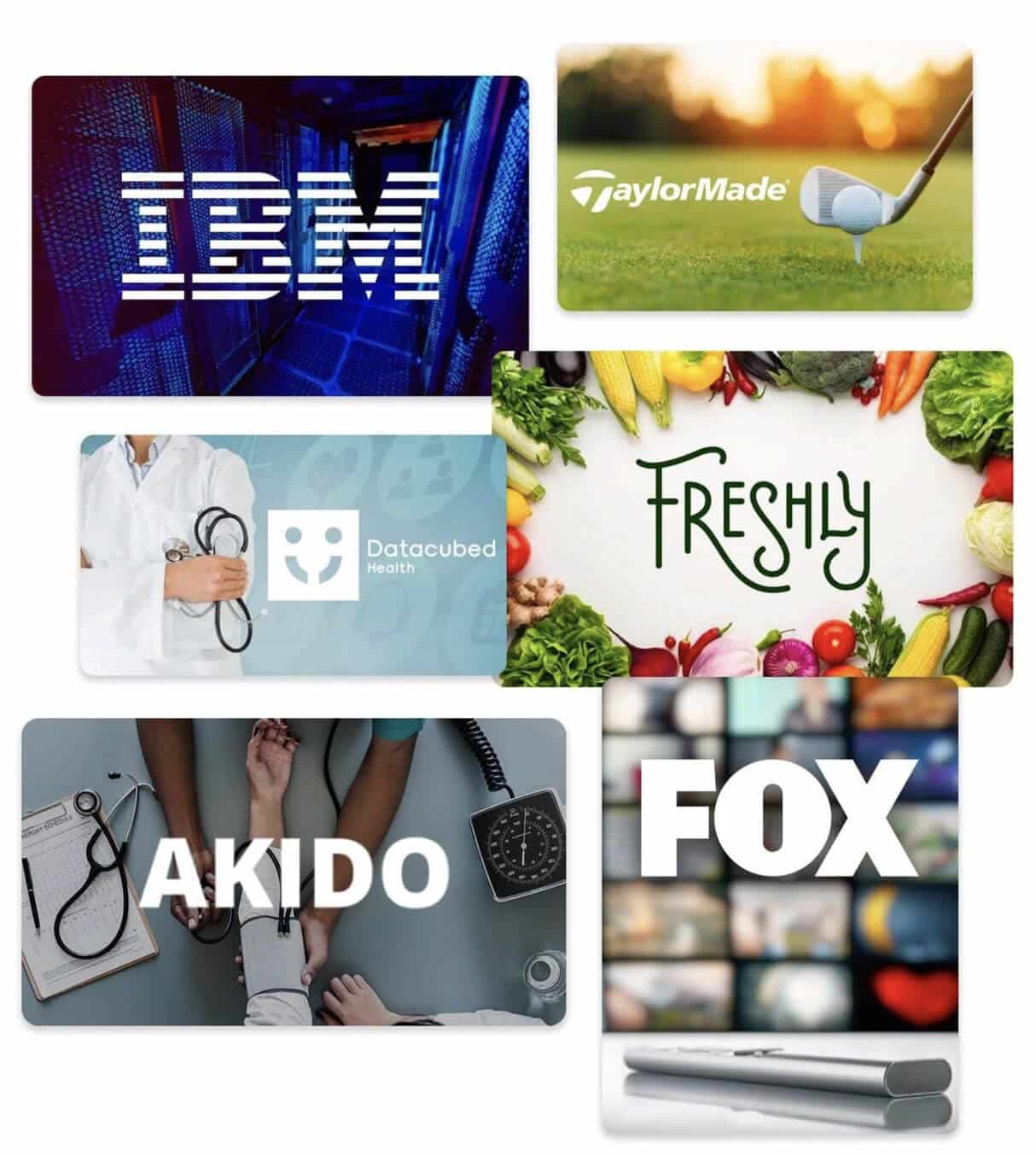Revolutionizing Healthcare: The Power of Healthcare Software
Transforming Patient Care and Efficiency: The Power of Healthcare Software Solutions

Everything you need to know about
The Power of Healthcare Software
In today’s fast-paced world, where technology permeates every aspect of our lives, the healthcare industry has not remained untouched. Healthcare software has emerged as a transformative force, revolutionizing how healthcare providers deliver care, manage patient data, and streamline administrative processes. From electronic health records (EHR) to telemedicine platforms and artificial intelligence (AI)-driven diagnostics, healthcare software is reshaping the healthcare landscape, offering unprecedented opportunities for improved patient outcomes, cost savings, and increased efficiency. In this article, we will explore the transformative potential of healthcare software and its profound impact on the healthcare ecosystem.
Enhancing Patient Care
One of the critical advantages of healthcare software is its ability to improve patient care. Electronic health records (EHRs) have replaced traditional paper-based systems, enabling healthcare providers to access real-time comprehensive patient information. This streamlined access to medical records allows for quicker and more accurate diagnoses, reducing the risk of medical errors and improving patient safety. Furthermore, healthcare software enables healthcare professionals to track patient progress, share information seamlessly, and collaborate with multidisciplinary teams, leading to better-coordinated care and improved patient outcomes (1).
“As of 2021, nearly 4 in 5 office-based physicians (78%) and nearly all non-federal acute care hospitals (96%) adopted a certified EHR.”
– Technology Advise
Our Executive Team

Common Industries we provide Technology in Healthcare Software:
Healthcare & Life Sciences
SaaS & Information Services
Manufacturing
Financial Services & FinTech
Retail & E-Commerce
Insurance
Logistics & Automotive
Travel & Hospitality
Telemedicine, Powered by
Healthcare Software
This Technology has emerged as a game-changer in healthcare services. Telemedicine platforms facilitate remote consultations, enabling patients to connect with healthcare professionals virtually, eliminating geographical barriers, and expanding access to care. This technology has proven particularly valuable during the COVID-19 pandemic, enabling individuals to receive medical advice, diagnoses, and prescriptions without leaving their homes. Telemedicine improves patient convenience, reduces healthcare costs, and eases the burden on overburdened healthcare systems.
Efficiency and Cost Savings
Healthcare software has significantly increased efficiency within healthcare organizations, resulting in substantial cost savings. Once time-consuming and prone to errors, such as appointment scheduling, billing, and insurance claims, administrative tasks can now be automated using healthcare software solutions. By automating these processes, healthcare providers can reduce administrative overhead, allocate resources more efficiently, and focus on delivering high-quality care to patients. This improves the patient experience and lowers healthcare costs, making healthcare more accessible and affordable.
Additionally, healthcare software enables data-driven decision-making and predictive analytics. By leveraging vast patient data, healthcare organizations can identify trends, patterns, and risk factors, allowing for proactive intervention and preventive care strategies. This targeted approach improves patient outcomes and reduces healthcare costs associated with preventable complications and hospital readmissions.


Common Industries we provide Technology in Healthcare Software:

COST-EFFECTIVE DEVELOPERS
Our Software Developers and Engineers cost
on average $45 to $65 per hour

HIGHEST QUALITY DEDICATED TEAMS
Access to the TOP 1% of Nearshore Software Development resources in Latin America

TIME SENSITIVE DEVELOPMENT
Sonatafy’s Nearshore Talent Acquisition can place qualified Software Engineering teams in as quick as 2 weeks
Innovations in Diagnostics
and Treatment
Healthcare software, artificial intelligence (AI), and machine learning algorithms are revolutionizing diagnostics and treatment. AI-driven diagnostic software can analyze medical images, such as X-rays, CT scans, and MRIs, with remarkable speed and accuracy, assisting radiologists in detecting abnormalities and making diagnoses. This technology enhances diagnostic accuracy and expedites the process, leading to quicker treatment initiation and improved patient outcomes.
Furthermore, healthcare software facilitates personalized medicine and precision treatment.
By integrating patient-specific data, such as genetic information and medical history, with AI algorithms, healthcare providers can develop tailored treatment plans and targeted therapies. This approach improves treatment efficacy, minimizes adverse effects, and optimizes patient response to medication.

Interested In Working With Sonatafy?
Challenges and
Future Outlook in the Healthcare:
Another challenge lies in the integration and interoperability of various healthcare software systems. To fully harness the benefits of healthcare software, seamless data exchange and interoperability between different software platforms are crucial. Standardization and interoperability protocols must be established to enable smooth communication and data sharing among various healthcare software applications.
Looking ahead, the future of healthcare software is promising.
Advancements in technologies like AI, machine learning, and the Internet of Things (IoT) will continue to drive innovation in the healthcare industry. Wearable devices and remote monitoring tools integrated with healthcare software will enable continuous monitoring of patient health, early detection of anomalies, and proactive interventions.
Moreover, blockchain technology holds the potential to revolutionize data security and interoperability in healthcare. Blockchain-based systems can ensure secure and transparent patient data storage and exchange, reducing the risk of data breaches and enabling the secure sharing of information across different healthcare providers.
Healthcare software is transforming how healthcare is delivered, managed, and experienced.
From enhancing patient care and improving efficiency to enabling precise diagnostics and personalized treatments, healthcare software is reshaping the healthcare landscape. However, addressing data security and interoperability challenges will be crucial for maximizing the potential of healthcare software. As technology continues to evolve, the future of healthcare software looks promising, with further advancements poised to improve patient outcomes, increase accessibility to care, and drive down healthcare costs. By embracing these innovations, healthcare organizations can pave the way for a more efficient, patient-centric, and sustainable healthcare system.
%
TOP NEARSHORE TALENT
%
ATTRITION RATE
%
ENGLISH PROFICIENCY
RESOURCES DEPLOYED
How SaaS Can Be Used in the Healthcare
Industry and Some Examples:
Software as a Service (SaaS) has gained significant traction across various industries, including healthcare. SaaS solutions offer a flexible and cost-effective approach to software deployment and management, making them an ideal fit for healthcare organizations of all sizes. Let’s explore how SaaS in healthcare can be leveraged and some examples of its applications.
Electronic Health Records (EHR) Systems
One of the primary areas where SaaS is widely used in healthcare is developing and deploying electronic health records (EHR) systems. EHR software lets healthcare providers digitally capture, store, and manage patient information. By adopting a SaaS-based EHR solution, healthcare organizations can eliminate the need for on-premises infrastructure and reduce IT maintenance costs. SaaS-based EHR systems also provide seamless updates and scalability, ensuring that healthcare providers can access the latest features and accommodate increasing data volumes as their practices grow (2).
“An EHR system also provides a structure and process for communication, ensuring care plans are available to prevent conflicting treatments and redundancy.”
– Forbes
Practice Management Software
Practice management software streamlines administrative tasks, such as appointment scheduling, billing, and inventory management, in healthcare facilities. SaaS-based practice management solutions offer healthcare providers the convenience of accessing these essential tools through a web browser, eliminating the need for local installations. These cloud-based solutions enable healthcare organizations to manage their practices efficiently, improve patient flow, and optimize revenue cycles while reducing IT infrastructure costs.
Telemedicine Platforms
Telemedicine has experienced significant growth in recent years, and SaaS plays a pivotal role in powering these virtual healthcare platforms. SaaS-based telemedicine solutions provide healthcare providers with the infrastructure and tools to deliver remote consultations, video conferencing, and secure patient messaging. These platforms offer scalability, data security, and seamless integration with existing EHR systems, allowing healthcare providers to extend their services beyond traditional brick-and-mortar settings and reach patients in remote areas.
Analytics and Business Intelligence
Healthcare organizations generate vast amounts of data, and SaaS-based analytics and business intelligence tools are invaluable in harnessing actionable insights from this information. These tools enable healthcare providers to analyze clinical and operational data, identify trends, and make data-driven decisions to improve patient outcomes, optimize resource allocation, and enhance organizational performance. SaaS-based analytics platforms offer scalability, flexibility, and the ability to integrate data from multiple sources, empowering healthcare organizations to gain comprehensive insights into their operations.
Patient Engagement and Communication
SaaS solutions also play a crucial role in improving patient engagement and communication. Patient portals and mobile applications, built on SaaS platforms, empower patients to access their health information, schedule appointments, communicate securely with healthcare providers, and receive personalized health education materials. These tools enhance patient satisfaction, improve medication adherence, and enable effective remote monitoring and follow-up care.
Examples of SaaS-based healthcare software solutions:
- Epic Systems: Epic is a leading provider of EHR systems used by many large healthcare organizations. Their cloud-based software offers comprehensive EHR functionality and interoperability, allowing healthcare providers to manage patient records seamlessly.
- Athenahealth: Athenahealth offers a SaaS-based practice management and EHR solution to streamline workflows and enhance revenue cycles. Their cloud-based platform integrates scheduling, billing, and clinical documentation, improving operational efficiency.
- Doxy.me: Doxy.me is a SaaS-based telemedicine platform that enables healthcare providers to conduct secure and HIPAA-compliant video consultations with patients. The platform is accessible via web browsers and mobile devices, making it convenient for healthcare providers and patients.
- Tableau: Tableau is a popular SaaS-based analytics and business intelligence tool widely used in the healthcare industry. It allows healthcare organizations to visualize and analyze data from various sources, empowering them to make informed decisions and improve patient care and operational efficiency.
- Phreesia: Phreesia offers a SaaS-based patient intake and engagement platform that streamlines the registration process, automates administrative tasks, and enhances patient communication. The platform allows patients to complete registration forms electronically, reducing paperwork and improving data accuracy.
- Salesforce Health Cloud: Salesforce Health Cloud is a SaaS-based customer relationship management (CRM) platform tailored for the healthcare industry. It enables healthcare providers to manage patient relationships, track interactions, and personalize care plans. The platform also facilitates collaboration among care teams and integrates with EHR systems.
- Medidata Solutions: Medidata Solutions provides a SaaS platform for clinical research and data management. Their cloud-based software helps streamline clinical trials, collect and analyze data, and improve collaboration among research stakeholders.
SaaS has revolutionized the healthcare industry by providing flexible, cost-effective, scalable software solutions.
SaaS-based healthcare software has transformed how healthcare organizations deliver care, manage operations, and engage with patients, from electronic health records to practice management systems, telemedicine platforms, analytics tools, and patient engagement applications. By leveraging SaaS solutions, healthcare providers can improve efficiency, reduce costs, enhance patient outcomes, and embrace the digital transformation of the healthcare ecosystem. As technology in health (https://sonatafy.com/technology-in-healthcare/) advances, the role of SaaS in healthcare is set to expand, enabling further innovation and improvements in patient care.
Healthcare Software Companies
Awards & Recognitions
Helping take our clients’ software development businesses to the next level has been quite an experience, and we are not slowing down any time soon. Providing a memorable experience and far surpassing our customers’ software development and solutions goals is one of the most rewarding experiences of our company to date.
We’re ready to start helping your company grow with our industry-leading custom software development solution, are you?

Earning Trust & Loyalty for our Software Development Services
Our executive team proudly provides complete custom healthcare software development solutions from deployment to completion.
Our client-centric software development solutions have made us the healthcare app development provider of choice for clients such as Akido Labs, Datacubed Health, Sema Technologies, and Semantic AI, among others. With thousands of software development engineers deployed to date, clients love our personalized high-touch approach.
With high-quality delivery web development services and strong customer support and management, we give you the ability to focus on business decisions rather than software development issues.
Sonatafy Technology services can dramatically
improve the Technology in Healthcare Software.
Our Software Development Clients Have Spoken.

“We increased our productivity and quality by extending our team with Sonatafy resources. They are part of our ‘family’. Their passion, dedication, experience, and wisdom has been nothing short of impressive.”

“We have been using Sonatafy for software team augmentation. Their vetting process is extremely through and has saved us a huge amount of time. All of the candidates presented have been outstanding and have fit into our team perfectly.”

“The Sonatafy team consists of members who are dedicated, personable, and attentive. They will search tirelessly to match the right talent to meet your skills and budgetary requirements. Regardless of your situation, you cannot go wrong with Sonatafy.”

“The Sonatafy team has continually impressed us with the quality of their engineers — we have found excellent engineering leaders in their contractors who have helped tremendously. They really are an integral part of our team, and we’re very thankful for Sonatafy’s professional leadership in this space. I heartily recommend them to augment anyone’s teams or projects.”

“At IMAIGE Analytics, we are driven by purpose and outcomes. Sonatafy has been the exact type of partner we need to help us deliver on both. They’ve found solutions specific to our purpose and needs, their resources have contributed like long time team members from day one and they seem dedicated to progressively better outcomes from the start. Thanks to the team and to Steve for taking the time to make our business better!”

“The entire team at Sonatafy greatly surpassed our expectations. We require very specific skill sets and the team did an incredible job of screening and selecting top – notch candidates. Sonatafy’s attention to detail, professionalism, open communication, and collaboration with us ensured that we found highly skilled talent that fit seamlessly into our company’s culture. I can’t recommend them strongly enough.”

“Sonatafy makes it easy to find great and professional talent, with their help we have been able to solidify our team. Their process and communication is a refresher and a weight off our shoulders.”

I’ve used Sonatafy Technologies for the last 5 + years at several of my companies both small and large, in a staff augmentation capacity. I have been consistently impressed with the high – quality of technical skills as well as the team member’s high level of engagement and dedication to my projects. I’ve always considered my dedicated Sonatafy resources as members of my team , and their contributions and performance has been excellent. The combination of high performance and afford ability has been an outstanding benefit , and I would highly recommend using Sonatafy Technologies as your near shore technology partner.
Digital Transformation in Healthcare
is what you need for success.
Digital transformation refers to integrating digital technologies and solutions into various aspects of healthcare to improve care delivery, enhance operational efficiency, and drive better patient outcomes. It involves adopting innovative technologies, such as electronic health records (EHR), telemedicine, remote patient monitoring, and healthcare software, to transform traditional healthcare practices and enable more connected and patient-centric care delivery.
Electronic Health Records (EHR)
Electronic Health Records (EHR) are digital versions of patients’ medical records, including their medical history, diagnoses, medications, allergies, and treatment plans. EHR systems enable healthcare providers to securely store, access, and share patient information. These systems enhance care coordination, improve patient safety, and facilitate more informed decision-making by providing real-time access to comprehensive patient data.
Telemedicine Software
Telemedicine software facilitates remote medical consultations and care delivery through video conferencing, secure messaging, and virtual visits. It allows healthcare providers to connect with patients who cannot visit a healthcare facility physically, thereby improving access to care, reducing geographical barriers, and enhancing convenience for patients and providers. Telemedicine software has gained significant popularity, particularly during the COVID-19 pandemic, enabling remote diagnosis, monitoring, and treatment (3).
“Due to the COVID pandemic, this has become an increasingly popular option for patients that are hesitant to come to the Emergency Department for more routine complaints, and also with some practices running with reduced hours, or even closed.”
– Tech Radar
Remote Patient Monitoring (RPM)
Remote Patient Monitoring (RPM) involves using technology to monitor patients’ health conditions outside traditional healthcare settings. RPM solutions typically involve wearable devices, sensors, or mobile apps that collect patients’ vital signs, activity levels, or other health-related data. This information is then transmitted to healthcare providers, who can remotely monitor patients’ health, detect changes or anomalies, and intervene proactively, ultimately leading to better management of chronic conditions and improved patient outcomes.
Hospital Management Systems (HMS)
Hospital Management Systems (HMS) are software platforms designed to streamline and automate administrative and operational tasks within a hospital or healthcare facility. HMS solutions typically encompass functionalities such as patient registration, appointment scheduling, billing and invoicing, inventory management, and staff scheduling. These systems improve efficiency, reduce paperwork, and enhance overall operational management within healthcare organizations.
Healthcare CRM Software
Healthcare Customer Relationship Management (CRM) software helps organizations manage patient relationships, track interactions, and provide personalized care. CRM systems enable healthcare providers to collect and analyze patient data, enhance patient engagement and satisfaction, improve communication and follow-up, and streamline care coordination across different departments and care settings.
E-prescription Software
E-prescription software allows healthcare providers to generate and transmit electronic prescriptions to pharmacies directly. It replaces traditional paper-based medicines, reducing errors and improving medication safety. E-prescription software enables providers to access patients’ medication history, check for potential drug interactions, and receive alerts for allergies or contraindications, ensuring more accurate and informed prescribing practices.
Medical Diagnosis Software
Medical diagnosis software utilizes advanced technologies, such as artificial intelligence (AI) and machine learning, to assist healthcare professionals in making accurate and timely diagnoses. These software applications analyze patient data, medical images, and clinical symptoms, comparing them against vast databases and algorithms to provide diagnostic recommendations or support. Medical diagnosis software enhances diagnostic accuracy, speeds up the diagnostic process, and improves patient outcomes.
Appointment Booking Software
Appointment booking software lets patients schedule appointments with healthcare providers online. These software solutions eliminate the need for manual appointment scheduling, reduce administrative workload, and improve patient convenience by offering 24/7 access to appointment booking. Appointment booking software can integrate with EHR systems, allowing seamless appointment updates and reminders.
Health Tracking Apps
Health tracking apps are mobile applications that allow individuals to monitor and track their health-related data, such as physical activity, nutrition, sleep patterns, and vital signs. These apps often integrate with wearable devices or smartphone sensors to collect data and give users insights into their health behaviors and progress. Health tracking apps can help individuals set health goals, track their progress, receive personalized recommendations, and engage in self-management of their health.
Medical Billing Software
Medical billing software automates healthcare organizations’ billing and invoicing processes. It manages the generation of medical bills, tracks payments and claims, and facilitates communication with insurance providers. Medical billing software reduces manual errors, speeds up the billing cycle, improves revenue management, and ensures accurate reimbursement for healthcare services.
Clinical Trial Management Software
Clinical trial management software supports the planning, execution, and management of clinical trials. It helps researchers and organizations streamline trial processes, track participant data, manage regulatory compliance, monitor study progress, and analyze trial results. Clinical trial management software improves efficiency, data accuracy, and collaboration among research teams, ultimately contributing to developing new treatments and therapies.
Mobile Health (Health) Apps
Mobile health (mHealth) apps are mobile applications designed to deliver healthcare services, information, and support through smartphones or tablets. These apps cover many functionalities, including telemedicine, health tracking, medication reminders, symptom assessment, and health education. Health apps empower individuals to manage their health, provide access to medical resources remotely, and support preventive care and self-monitoring.
Remote Medical Training
Remote medical training software facilitates remote learning and training for healthcare professionals. These platforms offer virtual classrooms, webinars, and interactive modules to deliver medical education, continuing education credits, and professional development opportunities. Remote medical training software ensures access to high-quality education regardless of geographical location and enables ongoing learning for healthcare professionals.
Medical Imaging
Medical imaging software enables the acquisition, storage, viewing, and analysis of medical images, such as X-rays, CT scans, MRIs, and ultrasounds. These software solutions enhance the interpretation of images, support accurate diagnoses, and enable collaboration among radiologists and other healthcare professionals. Medical imaging software also facilitates the integration of imaging data into EHR systems for comprehensive patient records.
Personal Health Record Software
Personal Health Record (PHR) software allows individuals to digitally create and manage their health information. PHR software enables patients to securely store and access their medical history, medications, allergies, and test results. It empowers patients to take ownership of their health data, share information with healthcare providers, and actively participate in their care.
Medical Research Software
Medical research software supports the planning, execution, and analysis of medical research studies. These software solutions assist researchers in study design, data collection and management, statistical analysis, and reporting. Medical research software improves research efficiency, data integrity, and collaboration among research teams, facilitating advancements in medical knowledge and evidence-based practices.
The Role of Software in Healthcare
Software is critical in transforming the healthcare industry. It enables healthcare organizations to streamline operations, improve patient care and outcomes, enhance data management and analysis, and optimize resource allocation. Software solutions automate administrative tasks, facilitate communication and collaboration, enable remote care delivery, improve decision-making through data-driven insights, and empower patients to participate actively in their health. Integrating software in healthcare promotes efficiency, cost savings, patient engagement, and quality improvement initiatives.
15 Types of Healthcare Software That You Can Use:
- Electronic Health Records (EHR)
- Telemedicine Software
- Remote Patient Monitoring (RPM) Systems
- Hospital Management Systems (HMS)
- Healthcare CRM Software
- E-prescription Software
- Medical Diagnosis Software
- Appointment Booking Software
- Health Tracking Apps
- Medical Billing Software
- Clinical Trial Management Software
- Mobile Health (mHealth) Apps
- Remote Medical Training Software
- Medical Imaging Software
- Personal Health Record (PHR) Software
These types of healthcare software offer a range of functionalities and applications to support different aspects of healthcare delivery, management, and patient engagement. Whether improving clinical workflows, enhancing patient communication, facilitating remote care, managing medical data, or supporting research endeavors, healthcare software drives efficiency, quality, and innovation in the healthcare industry. By leveraging these software solutions, healthcare organizations can adapt to the digital era, improve patient experiences, and achieve better health outcomes.
What does healthcare software do?
Healthcare software refers to a broad range of applications and systems designed to support various functions within the healthcare industry. It enables the management and storage of patient data, facilitates communication and collaboration among healthcare professionals, automates administrative tasks, supports clinical decision-making, enhances patient engagement, and improves overall efficiency and quality of care delivery.
What software do most hospitals use?
There are several commonly used software systems in hospitals, including:
Electronic Health Records (EHR) systems: Hospitals widely use EHR systems to store, manage, and access patient medical records electronically. Popular EHR systems include Epic, Cerner, Allscripts, and Meditech.
Hospital Management Systems (HMS): HMS software is used to streamline hospital administrative and operational tasks. These systems often include functionalities such as patient registration, appointment scheduling, billing, and inventory management. Examples of HMS software include Epic, Cerner, and McKesson.
Picture Archiving and Communication Systems (PACS): PACS software is used to store, manage, and view medical images such as X-rays, CT scans, and MRIs. It allows radiologists and other healthcare professionals to access and analyze pictures digitally. Standard PACS software includes Agfa HealthCare, Carestream, and Sectra.
What software do medical clinics use? Medical clinics typically use software that caters to their specific needs, which can vary based on the size and specialty of the clinic. Some commonly used software in medical clinics include:
Electronic Health Records (EHR) systems: EHR systems are crucial for medical clinics to manage patient data and streamline clinical workflows. Examples include Epic, NextGen, and eClinicalWorks.
Practice Management Systems: Practice management software helps clinics with appointment scheduling, billing, and insurance claims management tasks. Popular systems include Athenahealth, AdvancedMD, and Kareo.
Medical Billing and Coding Software: Medical clinics often use specialized software for accurate billing and coding to ensure proper reimbursement. Examples include Kareo, AdvancedMD, and NueMD.
What software does Epic Healthcare use?
Epic is a widely used EHR and healthcare software company that serves various healthcare organizations, including hospitals and clinics. Epic offers an integrated suite of software solutions that cover a range of functionalities, including EHR, practice management, revenue cycle management, patient engagement, and population health management. Epic’s software is known for its interoperability, scalability, and extensive customization options, making it a popular choice for many healthcare systems.
References:
- As of 2021, nearly 4 in 5 office-based physicians (78%) and nearly all non-federal acute care hospitals (96%) adopted a certified EHR. – Technology Advise Quote
https://technologyadvice.com/ehr-emr/ - An EHR system also provides a structure and process for communication, ensuring care plans are available to prevent conflicting treatments and redundancy. – Forbes Quote
https://www.forbes.com/advisor/business/software/best-ehr-software/ - Due to the COVID pandemic, this has become an increasingly popular option for patients that are hesitant to come to the Emergency Department for more routine complaints, and also with some practices running with reduced hours, or even closed. – Tech Radar Quote
https://www.techradar.com/best/best-telemedicine-software









